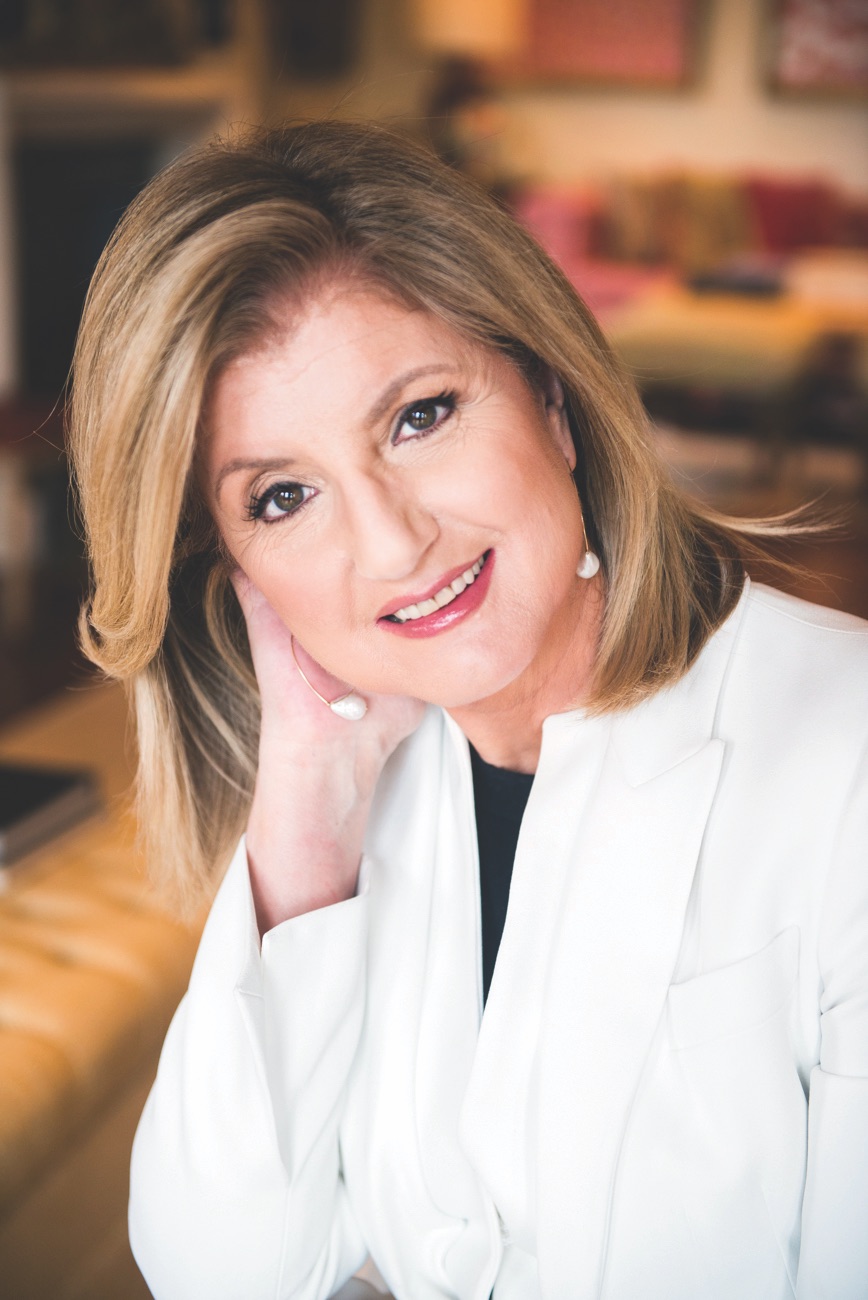 Photo courtesy Arianna Huffington.
Photo courtesy Arianna Huffington. The original force behind the news and opinion website Huffington Post (HuffPost) and the wellness startup Thrive Global, Arianna Huffington also is the author of “The Sleep Revolution,” which was released earlier this year. She took time to speak with the Journal on topics ranging from the benefits of Shabbat rest to her political aspirations.
Jewish Journal: You once ran for governor of California. Now you’re known as a leading advocate for getting enough sleep. How did you get from Point A to Point B?
Arianna Huffington: It’s been a long road, but there are some throughlines. One principle that has been constant in my life has been my love of helping people engage and connect. I’m Greek, that’s what we do. We lure you to the table to eat and talk. My brief flirtation with public office was part of that, and HuffPost was certainly a version of that. And so is Thrive Global, which is about helping people connect and engage — with their jobs, with their friends and family, and especially with themselves.
JJ: You say getting enough sleep is beneficial for decision- making, for reducing stress and for creativity. Is there a spiritual benefit, as well?
AH: Absolutely. It’s all connected. Seeking out and being open to something larger than ourselves is an essential element of our well-being. And it’s also a lot harder, if not impossible, when we’re stressed, harried, burned out and in perpetual flight-or-fight mode.
JJ: In Jewish tradition, we have a word for what you’re talking about: Shabbat. There’s an expression: “More than the Jews have kept Shabbat, Shabbat has kept the Jews.” Isn’t that another way of saying exactly what you’re trying to teach now?
AH: I love that. And it’s so true. Keeping to a contemplative tradition like Shabbat that involves disconnecting and connecting with what’s important to us keeps us connected to the essence of who we are. And that can work on both an individual and collective level.
JJ: I’m always trying to find ways to relax on Shabbat. What are your top three tips for getting enough rest?
AH: First, charge your phone outside your bedroom at night. Our phones are repositories of everything we need to put away to allow us to sleep — our to-do lists, our inboxes, our anxieties. Plus, the blue light they emit suppresses melatonin, the hormone connected to sleep regulation. So putting your phone to bed as a regular part of your bedtime ritual makes you more likely to wake up as fully charged as your phone. Second, try meditating before bed. It’s been proven to help people fall asleep faster. Last, if you’re having trouble falling sleep, read a book — but make it a real book or an e-reader that doesn’t emit blue light. And make sure it is not work-related: novels, poetry, philosophy — anything but work.
JJ: You seem like an incredibly driven person, and someone who’s always busy. Do you really meditate every day? Does it work for you?
AH: I try to. It’s the first thing I do when I wake up — it’s a much better way to start the day than reaching for your phone. And, yes, it really works. It makes me calmer and less reactive throughout the day.
JJ: Turning to politics, one explanation for the current divisiveness in our country is that people read only the version of the news they agree with. Didn’t your own creation, HuffPost, help get us into this mess?
AH: No, not at all. HuffPost was always about connecting people to their world and to each other, showing them how to be part of creating solutions. Certainly, HuffPost had an editorial voice — we never believed that the truth is somehow always magically in the middle. But that didn’t mean we didn’t welcome all voices from across the political spectrum.
JJ: How can we get back on track and start talking to each other again?
AH: A lot of it is about empathy and recognizing the humanity in each other. And that’s a lot easier to do when we put down our devices and engage with each other and ourselves. That won’t solve all the world’s problems, but it will allow us to access the qualities we need to meet those challenges: our wisdom, empathy and creativity.





















 More news and opinions than at a Shabbat dinner, right in your inbox.
More news and opinions than at a Shabbat dinner, right in your inbox.